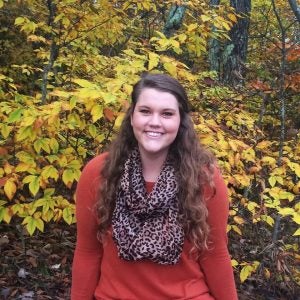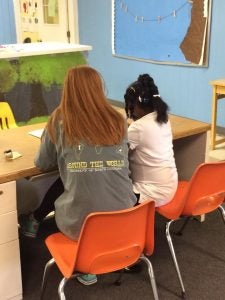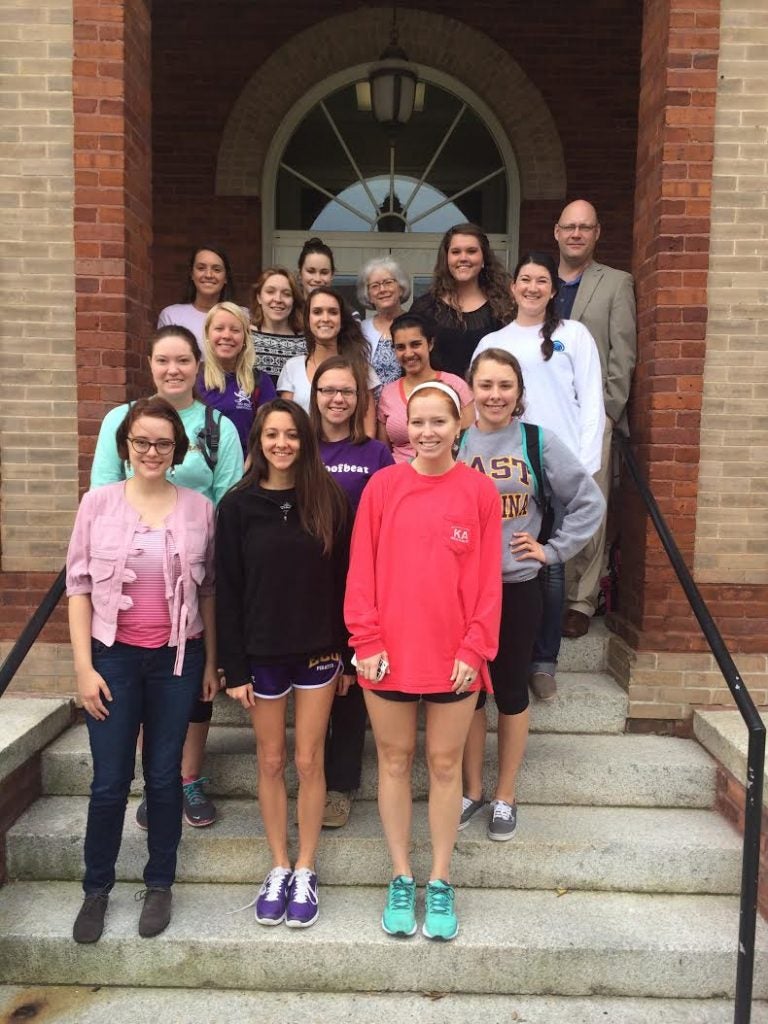October 20, 2015
The Psychology of Poverty and Poor Health
By: Nicole Fox, Honors College Sophomore
 All students in the Honors College are required to take two seminars of their choice before graduation. When I first signed up for the Psychology of Poverty and Poor Health, I had no idea what to expect. I remember when I walked in on the first day of class, my professor, Dr. Sears, announced that this course wouldn’t be easy. He said that we would learn about a lot of things that would stick with us, and we would challenge our personal beliefs and learn to see both sides of poverty. I didn’t really think that my opinion would change at all…as a matter of fact, before this class I never really knew what my opinion on poverty was. However, through this experience I learned a lot about the different views people take on topics like welfare, wealth inequality, and Obamacare. Through detailed discussions my class discovered not only the root causes of poverty, but also some things we could do to fix it.
All students in the Honors College are required to take two seminars of their choice before graduation. When I first signed up for the Psychology of Poverty and Poor Health, I had no idea what to expect. I remember when I walked in on the first day of class, my professor, Dr. Sears, announced that this course wouldn’t be easy. He said that we would learn about a lot of things that would stick with us, and we would challenge our personal beliefs and learn to see both sides of poverty. I didn’t really think that my opinion would change at all…as a matter of fact, before this class I never really knew what my opinion on poverty was. However, through this experience I learned a lot about the different views people take on topics like welfare, wealth inequality, and Obamacare. Through detailed discussions my class discovered not only the root causes of poverty, but also some things we could do to fix it.
While poverty is typically a sad subject, my amazing professors, Dr. Sears and Dr. McCammon managed to make this content relatable and interesting. Through various class activities I gained a new perspective and was able to place myself in different income groups, which instilled a sense of empathy and understanding in me. We played Monopoly to show how poverty is just like a roll of the dice, and a lot of times low-income families feel out of control. We also had the privilege donating money to a person or organization of our choice using Kiva, a website for microcredit loans for needy entrepreneurs around the world.
The most impactful thing I did last seminar was working with the local organization, Building Hope. Building Hope is an after school program for underprivileged children in  Greenville. One of the main things this organization was trying to improve is child literacy, so my seminar stepped in to help. The International organization Heifer is a non-profit that collects donations in order to send animals to foreign countries for impoverished people to use as resources. Heifer recently created a program called Read to Feed, where students record how many pages, chapters, or books they have read in order to receive sponsored donations to donate an animal to a family in need.
Greenville. One of the main things this organization was trying to improve is child literacy, so my seminar stepped in to help. The International organization Heifer is a non-profit that collects donations in order to send animals to foreign countries for impoverished people to use as resources. Heifer recently created a program called Read to Feed, where students record how many pages, chapters, or books they have read in order to receive sponsored donations to donate an animal to a family in need.
I volunteered to be a leader on this project, which provided me with a birds-eye view of all the action. It was so much fun introducing the idea of Read to Feed to the kids and watching them learn to love reading when it was connected to a worthy cause. I primarily worked with first and second graders, and it was so exciting to see how their literacy improved over just a few months. This experience was overall one of the most humbling things I have ever done, and it would not have been possible without my honors seminar.
Overall, The Psychology of Poverty and Poor Health was my favorite class last semester. Dr. Sears and Dr. McCammon are two of the most insightful and interesting individuals I have ever met, and I am so honored to have had the opportunity to work with them. This seminar has opened my eyes to many problems in the world, and though at times it was very sad, I now know some approaches to help fight poverty. I never would have been inspired to try and evoke a change with such a big issue, but now I have a new sense of empathy and want to do whatever I can to help those in need.
- Categories:
- Honors College

